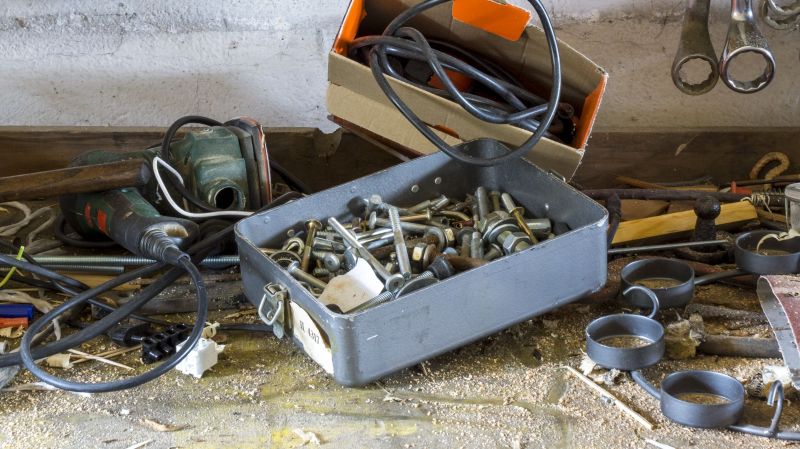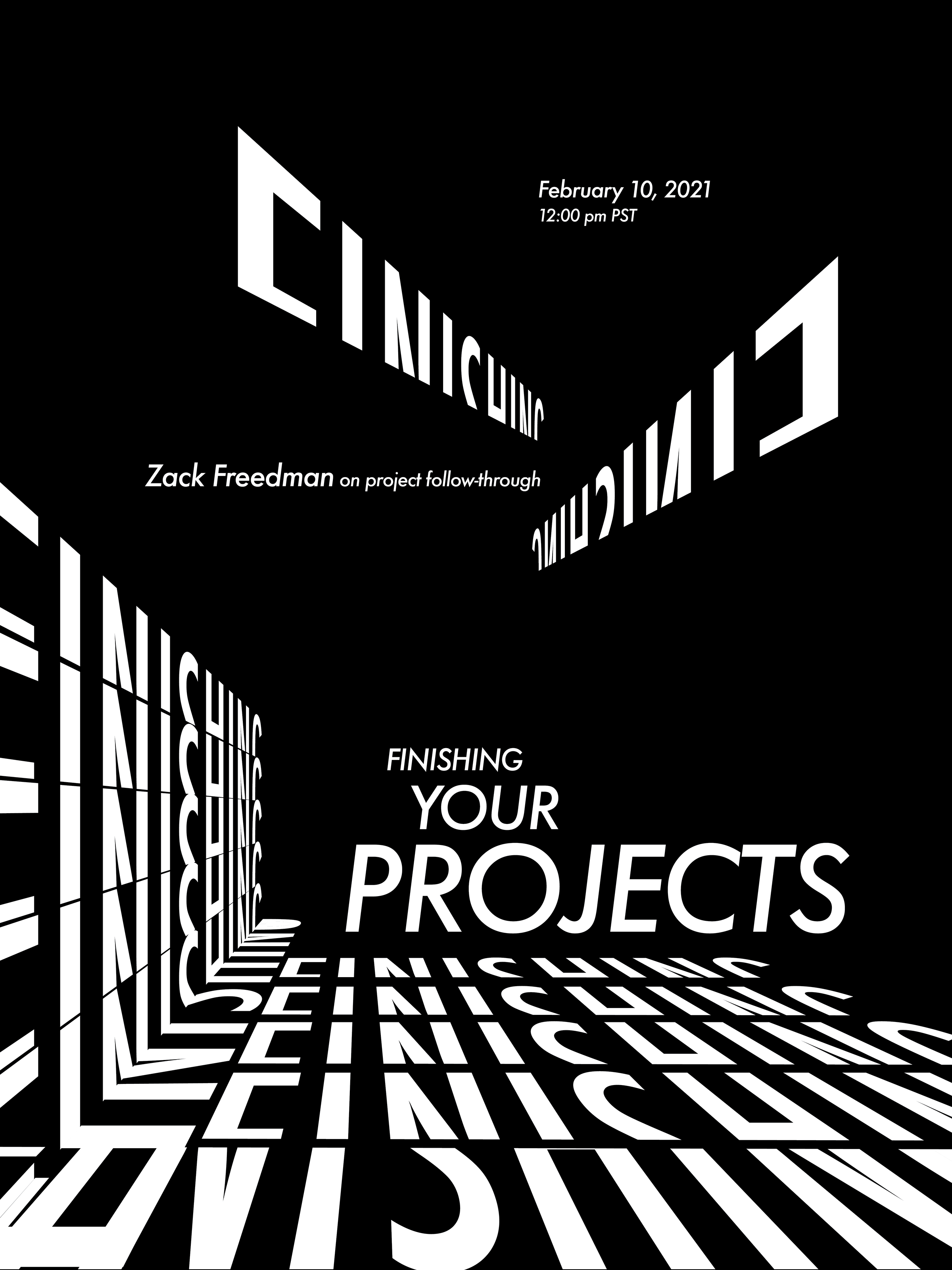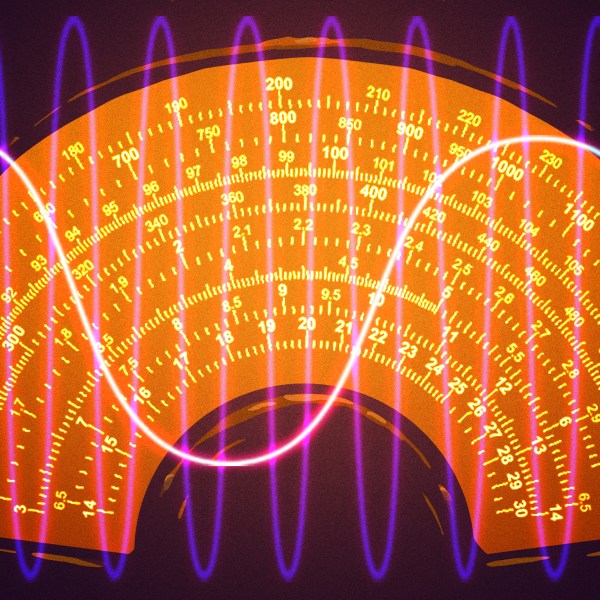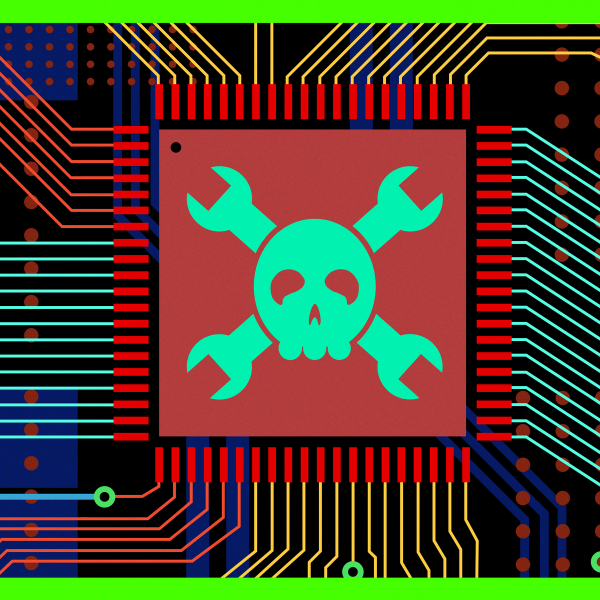Join us on Wednesday, February 10 at noon Pacific for the Finishing Your Projects Hack Chat with Zack Freedman!
Try as we might, some of us are much better at starting projects than finishing them. Our benches — or all too often, our notebooks — are graveyards of good attempts, littered with the scraps of ideas that really sounded good at the time and clouded by a miasma of good intentions and protestations that “This time, it’ll be different.” Spoiler alert: no, it won’t.
Trying to pin the cause of this painfully common problem on something specific is probably a fool’s errand, especially when given the fact that some people mysteriously don’t suffer from it, it would appear brain chemistry plays a role. Maybe some people just really like the dopamine hit of starting something new, which gives them the rush of excitement while the idea is still fresh, only to have it wane rapidly as the project enters the churn.
Whatever it is, if you suffer from it, chances are good you’ve looked for a way out at least once. If so, you’ll want to hop into this Hack Chat, where “very serious hacker” Zack Freedman, proprietor of the Voidstar Labs channel on YouTube, will share his thoughts on project follow-through. We’ve enjoyed Zack’s projects for a while now, and covered a few, from his in-your-face (on-your-wrist?) smartwatch to his video editing keypad. He gets stuff done, perhaps in part due to his workshop organization, but however he does it, we’re eager to hear about it. Join us as we discuss the art of follow-through and getting stuff done.
 Our Hack Chats are live community events in the Hackaday.io Hack Chat group messaging. This week we’ll be sitting down on Wednesday, February 10 at 12:00 PM Pacific time. If time zones have you tied up, we have a handy time zone converter.
Our Hack Chats are live community events in the Hackaday.io Hack Chat group messaging. This week we’ll be sitting down on Wednesday, February 10 at 12:00 PM Pacific time. If time zones have you tied up, we have a handy time zone converter.
Click that speech bubble to the right, and you’ll be taken directly to the Hack Chat group on Hackaday.io. You don’t have to wait until Wednesday; join whenever you want and you can see what the community is talking about.


















Can you please provide the article artwork/poster as a sticker so I can put one on every unfinished project I have? Thanks
No. Sorry. I mean, he might start a sticker project for you but he probably won’t actually finish it so I guess you’re out of luck.
My wife would really appreciate that as well…….
Okay, I’ll take that fool’s errand and run with it.
Dopamine is the neurotransmitter associated with completing tasks (among other functions). When we complete an object of desire, it triggers a dopamine release that makes us feel good.
The brain is also a correlation engine, so if you associate completing tasks with “nothing”, your brain can learn to not appreciate goals.
Additionally, there is a trade-off between the good feeling of accomplishment and any pain you feel on the way, and the brain can correlate that as well.
Thus: be sure working at your bench is comfortable. If every time you work on a project you get back aches (or similar), your brain will notice even if you don’t. If you accidentally burn your fingers or hit your thumb with a hammer, take a break and do something else for a few minutes: don’t let your brain associate the pain with the project. (Eating a slice of cake works well.)
Thus: be sure your goals are clear, finite, and measurable. Set a clear end-point for a project, something where you can say “now it’s done”, put it on a shelf, and move on. Dopamine doesn’t respond to fuzzy, indistinct goals.
Thus: Put an emotional payoff into your project. Decide *why* you want to do a project, and if possible make the outcome more emotionally (not intellectually) valuable to you. Promise yourself that the money from sales will go towards that camping trip you’ve always wanted to take, and keep fantasizing about that trip and how good it will be. Fantasize about all the attention you will get at the next con while wearing the costume. That sort of thing.
Many times projects falter because they become too large. Dopamine is “future expected reward”, and if that future never comes your brain can learn to avoid projects.
This: Keep the project finite and focused. Don’t keep adding features or bonuses ad infinitum – focus on a specific end goal or end date. If you really want to add features, write them down for a hypothetical “version 2” and focus on completing version 1 for now.
This: For large projects, and projects that seem short but become large, break the project into clear, specific sub-goals. Version the different levels of complexity, or break the project into overall steps: finish the design, build one prototype, test the prototype, then take a specific amount of time thinking about the project. Are there enough bugs to update the design? Should you move to production? Should you send test-cases to friends to evaluate?
This: For each sub-task completed, celebrate! Promise yourself that if you complete such-and-such goal, you’ll do something you consider fun and rewarding. Tailor the celebration to the level of the goal (ie – smaller celebrations for sub-goals, big celebrations for major milestones). Go to a dinner theatre with your spouse, go to the arcade and play skee-ball for a day, spend the day nudist hiking – anything that you will find enjoyable and charged with emotion.
Check: Are you putting things off because you’re tired? Check your vitamin D level. Improve your sleep quality. Get some blood work and see if you’re deficient in something (maybe Iron) or have a low-grade infection. See if you can eliminate some stress in your life – stressful friends, for instance. Switch your project time to mornings instead of evenings.
There’s a lot of science behind goal setting that’s backed up by psychological studies. It’s not hard to learn, and it definitely can make a difference in attaining your goals.
Thanks!
Now I don’t need to listen to the talk!
B^)
In addition to that nice write-up Mr Freedman already did quite a good short video on the topic: https://youtu.be/L1j93RnIxEo
My two biggest blockers are lack of focus and lack of time.
There are soooooooooooooo many things and projects I want to work on. Everything is interesting. It is so hard to focus on only one project at a time and not getting sidetracked. I happens so often that a small little detail of the main project doesn’t work as expected and researching alternative ways to solve it result in at least three totally new project ideas. It is a little bit like nuclear fission. It requires a moderator, and it requires the right amount of it. Too much dampening and the action ends completely. Not enough and the original project idea goes booom, together with all the offsprings. That balance is hard to maintain.
The other thing is time. There is work, I want to spend time with my lovely wife and now there are our little kids. The biggest time eaters ever. There is not even time left for vacuuming the floors or call somebody on the phone, save of doing complex projects.
Related with time is priorities. Every year she takes the kids with her to her mother for a few weeks and that is my project time of the year. An uninterrupted block of time longer than 90 seconds. But this time is so valuable that I have trouble to even get started on one of the many stalled projects on my shelf. Choose one, get reminded of the some others, have some great ideas there… Focus and priorities.
Many creative types (writers especially) have faced the same problem. Their solution is to get up two hours early and do all their creative stuff before everyone else wakes up.
Taking a look at “Daily Rituals” by Mason Currey shows that almost every famous creative type rose early and got their work out of the way first. Currey’s list covers sculptors, scientists, writers, painters, and all sorts of creative people. Only a small handful of people are night owls and can do this at night.
Creativity is at a maximum when you first wake up, and decreases throughout the day. Cognitive capacity is at a maximum when you first wake up, and also decreases as you use it throughout the day. Lots of people are simply too tired to do anything after work, and if it’s not physical tiredness but mental burnout. Their job is cognitively demanding and they use up all their cognitive capability during that period.
If you are serious about being a creative type, you will find a way to work it into your life. If you *cant* work it into your life, then this just means it’s not as important to you as other aspects – and you should bite the bullet and discard it as a life dream.
There’s nothing wrong with that – instead of imagining what you *could* do if you had the time, put the emphasis on what you *are* doing and being grateful for that.
Find a way to actually do it. Come up with a creative solution, or let it go.
It’ll work out much better for you in the long run.
That was really well put. I’ll spend some time thinking about this I think.
What I have found in the past is that if I start 10 projects at once, none of them gets finished. About 15 years ago, I switched modes and started focusing on one at a time. That has helped a LOT. Now I actually finish projects pretty regularly.
I don’t abandon all other projects and ideas entirely- I keep notebooks for ideas and I keep parts for different projects in separate boxes so that if I run into something I can use for one of those projects, I put it in the appropriate box, and I get to it when I get to it.
Some of my projects take a year or two to finish or to reach a phase of completion in which they become useful (3D printers for example, which are never really finished).
I’m currently struggling to finish a large project and find that my progress has been stymied by questioning some of the fundamental design choices I made earlier in the project. Now I’m forcing myself to push through the doubts and continue and will hopefully “finish” the project in a few weeks.
A few months ago I commented on the best thing that was ever explained to me….
I’s not the finished project that I’m after, but rather the discovery, learning, and figuring things out…. Sure there are a few projects that I want or need to see through to completion, and yes, that is sometimes hard to do. But for the most part, my projects are an exercise in experimentation and learning.
With those, I don’t need to feel bad when it doesn’t result in a finished object. I already reached my satisfaction in learning. Other people only see unfinished projects, but for me, I see increased knowledge and more “tools” for my belt that I can apply later….
Plus, ripping apart things that I’ve made puts more parts back into play!
This must be the most constructive and useful content on Hackaday in a suuuuper long time. No egos getting in the way, no whataboutisms, no waffle… really helpful stuff.
There is a psycholigic effect on finishing a project; it is that we are getting exposed to critics about it once finished. Therefore, we start thinking more deeply into reason and goals of it.
A couple of things have helped me finish projects more often:
1 – have a use (or an interest in the use) of the completed project! yes it’s sometimes cool to just to mess with a technical idea, or explore a new part, or resurrect some obsolete curiosity, but if you have an interest or goal in the project’s actual use, you’re more likely to finish it.
2 – Retire ;-) (or get laid off and house-bound because of some virus or other) . I’ve rekindled some long-dormant interests, blew the dust off of some 30 yr old shoeboxes of parts and completed/improved those projects, and am having fun using them (example – DIY field recording mics from hoarded professional electret capsules)
Like my page